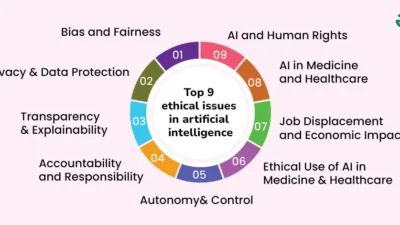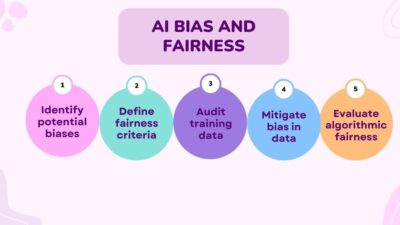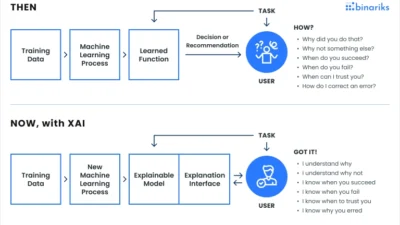With its innovative approaches to improving diagnosis and treatment planning, artificial intelligence (AI) is transforming the healthcare sector. AI makes it possible to provide healthcare solutions that are quicker, more precise, and more individualised by utilising sophisticated algorithms and enormous volumes of medical data.
The Function of AI Diagnosis **
By examining test findings, patient information, and medical imagery, AI-powered systems help with disease diagnosis. By identifying patterns that human physicians might miss, machine learning algorithms might increase early detection and accuracy.
Important Uses in Diagnosis:
- Medical Imaging Analysis: AI systems are able to identify anomalies in CT, MRI, and X-ray scans, which helps radiologists diagnose diseases like cancer and fractures.
Predictive Analytics: AI can evaluate genetic information and patient history to forecast the occurrence of diseases.such as Alzheimer’s, diabetes, and heart disease. - Laboratory and Pathology Tests: AI-driven systems evaluate blood samples and other laboratory tests to produce quicker, more accurate findings.
- AI in Planning Treatments
- AI is revolutionising treatment planning by optimising treatment regimens based on patient data and personalising medical care.
- How AI Improves Therapy Scheduling:
- In order to customise therapy for each patient, AI examines lifestyle, environmental, and genetic factors.
- medication Discovery and Development: AI shortens the time needed for clinical trials by discovering possible molecules, which speeds up medication development.
- Surgical Assistance: Robotic technologies powered by artificial intelligence let surgeons carry out intricate operations with greater accuracy and less invasiveness.
- Virtual Health Assistants: AI-driven chatbots and virtual assistants give patients post-treatment care instructions, prescription reminders, and medical advice.
- Difficulties and Moral IssuesNotwithstanding its advantages, AI in healthcare has drawbacks, including the requirement for regulatory approval, algorithm biases, and data privacy. Transparency, minimising biases in AI-driven diagnosis, and preserving human oversight in crucial medical choices are all ethical considerations.
- AI’s Role in Healthcare Going Forward
- Through its integration with cutting-edge technologies like blockchain for safe medical records, IoT devices for real-time health monitoring, and quantum computing for improved data processing, artificial intelligence (AI) has the potential to significantly transform healthcare. AI will become ever more important in enhancing medical research and patient care as it develops.
- Conclusion
- AI is revolutionising healthcare by making it possible for more precise diagnosis, individualised therapy, and better patient outcomes. Even though there are still obstacles to overcome, AI has enormous potential for the healthcare industry. The secret toIts effective application depends on ethical research, adherence to regulations, and cooperation between medical practitioners and AI specialists.
- How do you feel about AI’s application in healthcare? Post in the comments section below!





